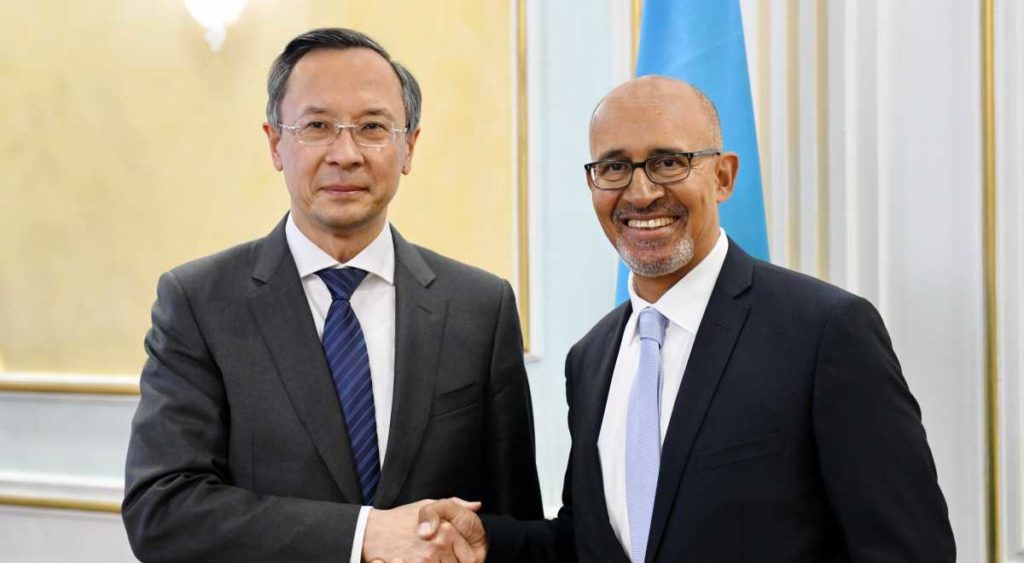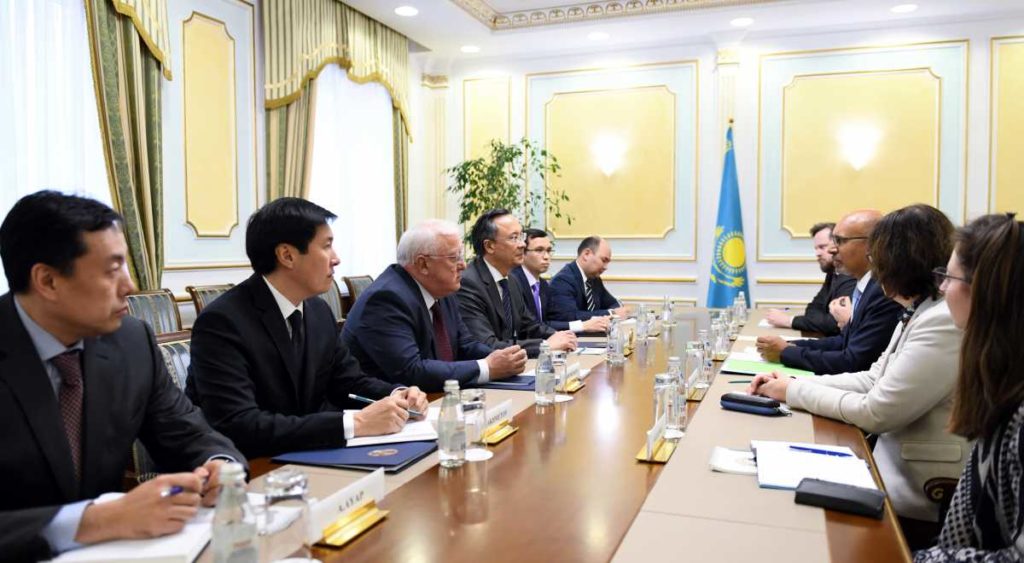ASTANA – Discussions among media professionals on how to collaborate in news production, improve content quality, fight fake news and increase media literacy, as well as the issue of media freedom, were on the agenda at the 20th Organisation for Security and Co-operation in Europe (OSCE) Central Asia Media Conference on The Future of Journalism held Nov. 7-8 in the Kazakh capital.
Harlem Désir, OSCE Representative on Freedom of the Media, noted the opportunity for Kazakhstan and the Central Asian region to be able to openly discuss media freedom is a significant achievement after the last OSCE summit in the city in 2010. Despite the fact the system still has its flaws, the two-day conference should serve as an instrument for progress in the area.
“I hope that during this two-day conference there will be the opportunity to discuss it with representatives of the government and officials coming from all the countries… We had a very constructive meeting today with the Minister of Communication [of Kazakhstan]. I think it is very important that he came to open this conference and listen to participants and the contribution of my office and what OSCE can bring to the development of the media reality in Kazakhstan,” he said referring to a meeting on the same day with Minister of Information and Communication Dauren Abayev.
The agenda for the first day included the global decrease in the quality of media content in the face of the rapidly-increasing quantity of information sources in the digitised era. Amid the chaotic flow of information, tackling the problem of so-called “fake news,” including disinformation, hate speech and terrorist propaganda, has never been as important. Many countries choose to punish people spreading fake news on the legislative level.
“Of course, the government is preoccupied with these trends of violence on social media and they adopt legislation which restricts unlawful content. But the risk is that it will also affect the freedom of expression and freedom of the media,” said Désir.

Minister of Foreign Affairs Kairat Abdrakhmanov (L) and Harlem Désir, OSCE Representative on Freedom of the Media (R). Photo credit: mfa.kz.
He noted the Kazakh criminal code has room for improvement to be more in line with OSCE standards. In particular, he indicated articles 174 and 274 related to inciting the population are too broadly defined.
“So, we [as OSCE] will provide the government with legal advice and expertise to improve this legislation and to ensure more protection for media freedom,” he added.
The event participants represented the media, government and civil society from Kazakhstan, Kyrgyzstan, Mongolia, Tajikistan, Turkmenistan and Uzbekistan, as well as several international experts. Participants also discussed the tools for effective fact checking and journalistic ethics.
Norway’s practice shows collaborative fact-checking initiatives such as Faktisk prove their effectiveness in producing higher quality news. The collaboration of major media agencies was essential in its progress in a small country, according to Faktisk journalist and fact-checker Tore Bergsaker.
Factcheck.kz, a similar independent fact checking initiative funded by the Soros Foundation, has been actively debunking suspicious information in Kazakh mass media. The project is the first of its kind in Central Asia.
Other equally important steps in reporting quality news are media literacy and well-thought legislation, as well as introducing a media ombudsperson, noted Gulnara Babadzhanova, director of the Preparatory Centre for Journalists in Uzbekistan.


